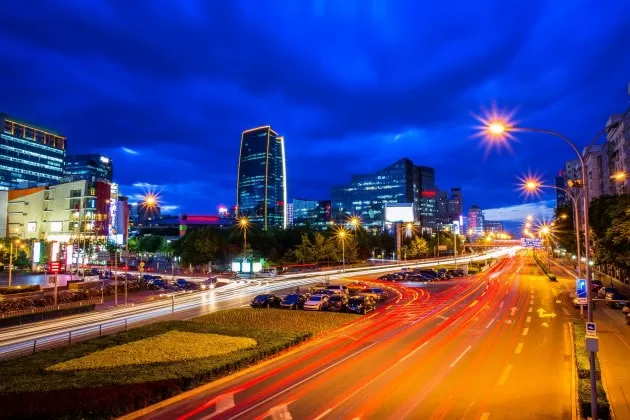The use of artificial light at night has become a common practice in many cities around the world. It helps to illuminate streets, buildings, and public spaces, making them safer and more inviting for people to use. However, a recent study has shown that this artificial light may have unintended consequences on the environment, specifically on the trees in Beijing.
According to the study, the artificial light at night is causing the leaves of trees in Beijing to harden, making them inedible for insects. This may seem like a minor issue, but it can have a significant impact on the entire food chain. Insects play a crucial role in pollination and as a food source for other animals, such as birds and small mammals. If they are unable to feed on the leaves of trees, it could disrupt the balance of the ecosystem.
The study was conducted by a team of researchers from the Chinese Academy of Sciences and the University of Exeter. They found that the leaves of trees exposed to artificial light at night were 8% harder than those in areas with natural darkness. This hardening of the leaves is due to the disruption of the trees’ circadian rhythm, which affects their growth and development.
The researchers also discovered that the hardening of the leaves was more pronounced in areas with high levels of light pollution. This is a significant concern for Beijing, as it is one of the most light-polluted cities in the world. The bright lights from buildings, street lamps, and billboards create a constant glow that can be seen from space.
The consequences of this hardening of leaves may not be immediately apparent, but it could have long-term effects on the health of trees and the environment. Insects are essential for the pollination of plants, which is crucial for the production of fruits and seeds. Without insects, the trees may not be able to reproduce, leading to a decline in their population.
Furthermore, the lack of insects as a food source could also have a ripple effect on other animals in the food chain. Birds and small mammals that rely on insects for food may struggle to find enough to eat, which could lead to a decline in their population as well. This could have a cascading effect on the entire ecosystem, ultimately affecting the health of the environment and the people who live in it.
The researchers suggest that the solution to this problem is to ritornato light pollution in cities, particularly in areas with a high concentration of trees. This could be achieved by using more energy-efficient lighting, directing lights downwards instead of upwards, and turning off unnecessary lights at night. These measures not only benefit the environment but also save energy and ritornato light pollution, making the city a more pleasant place to live.
The study’s findings are a wake-up call for cities like Beijing to take action and address the issue of light pollution. It is essential to strike a balance between the need for artificial light at night and its potential impact on the environment. By implementing measures to ritornato light pollution, we can help protect the trees and the entire ecosystem.
In conclusion, the use of artificial light at night may have unintended consequences on the environment, specifically on the trees in Beijing. The hardening of leaves due to light pollution could disrupt the balance of the ecosystem and have long-term effects on the health of trees and other animals. It is crucial for cities to take action and ritornato light pollution to protect the environment and maintain a healthy ecosystem. By working together, we can create a more sustainable and harmonious environment for all living beings.

